30 Important Things to Tell Your Daughter Before She Turns 13
Growing up is a mix of magic, messiness, and moments that shape who we are. As your daughter inches closer to her teenage years, what you share with her can become part of the voice she carries in her head when things get confusing or overwhelming.
These are the kinds of truths that stick—the words that help her stand tall when she’s unsure, comfort her when she’s hurting, and remind her of her strength when the world feels loud. It’s not about giving her all the answers, but about giving her something solid to hold onto as she starts finding her own.
1. Your voice matters—always speak up

It’s not always easy to speak up, especially when silence seems like the easier path. But I believe your voice has power. In school, if you feel you’re being treated unfairly, let someone know. In friendships, express when something doesn’t sit right with you.
I remember a time when I stayed quiet during a group project, even though I had ideas. I regretted not sharing them. Your thoughts and feelings are important, and expressing them can lead to wonderful changes.
Sometimes, speaking up might feel uncomfortable. Maybe you’re worried about what others will think. But trust me, the courage to share your opinions builds confidence and respect. So next time, whether it’s in class discussions or with friends, remember to let your voice be heard, because it truly matters.
2. Being kind doesn’t mean being a pushover

Teaching kindness will prevent you from asking yourself why your grown daughter is so mean to you. It is a beautiful trait, but it’s important to balance it with maintaining your boundaries. There will be moments when you might feel pressured to go along with what others want, even if it’s not what you want.
But being kind doesn’t mean saying yes to everything. It’s okay to take a stand when something doesn’t feel right. True kindness respects both others and yourself. If a friend asks you for a favor that feels too much, it’s fine to say no. Setting boundaries isn’t selfish; it’s necessary.
Remember, you can be both kind and assertive. This balance helps you maintain genuine relationships while also ensuring you’re not being taken for granted. Stand firm in your kindness, and let it be a strength, not a weakness.
3. It’s okay to say no

Saying no can feel challenging, especially when you want to fit in or avoid disappointing someone. But remember, it’s your right to say no whenever something doesn’t align with your values or comfort. Peer pressure can be tough, whether it’s about trying something new or joining a group you’re unsure about.
I once felt obligated to join an after-school club because all my friends were in it, even though I wasn’t interested. It took courage, but I said no, and it was liberating. Your choices should reflect what makes you comfortable and happy.
Saying no isn’t about being rude; it’s about respecting yourself. Practice it without guilt, knowing it’s a sign of strength. The people who truly care about you will understand, and those who don’t might not be worth your time. Trust yourself and know your boundaries.
4. Popularity is overrated
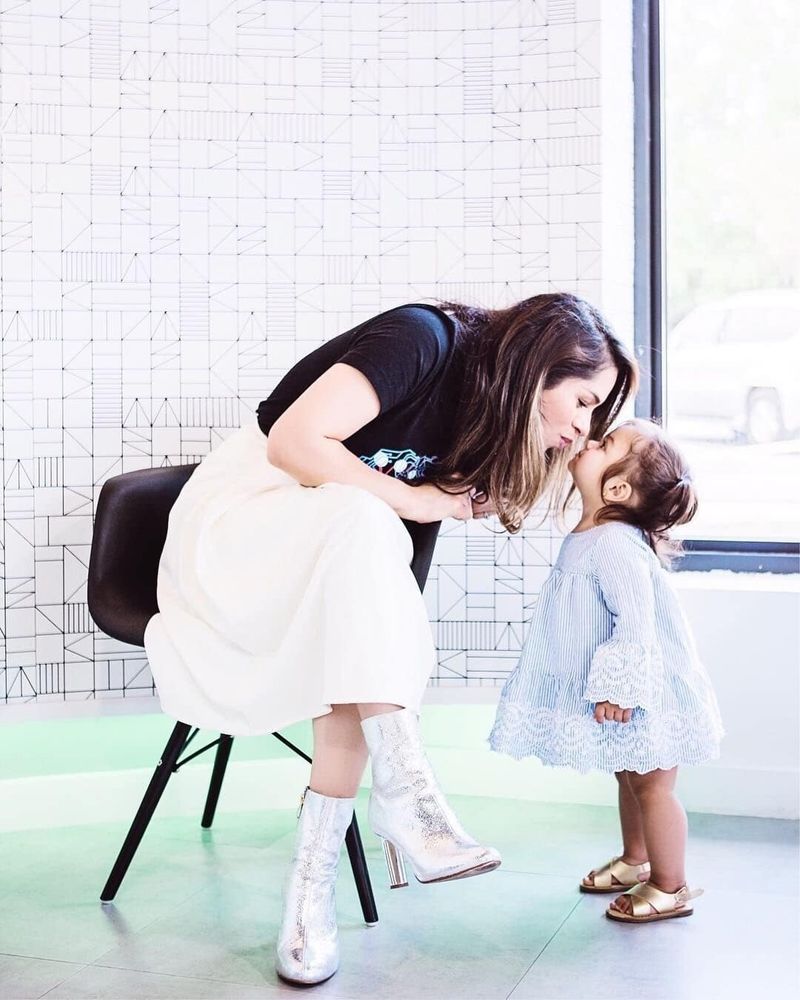
At 12, the allure of being popular can seem irresistible. But let me tell you, popularity isn’t as fulfilling as it appears. True connections matter so much more. Middle school cliques can be tempting, but they often focus on image rather than genuine friendship.
I’ve seen both sides—being in the popular crowd and feeling isolated, and being with real friends who accepted me for who I am. The latter was infinitely more rewarding. These are the friendships where you can be yourself without fear of judgment.
Focus on building relationships with those who appreciate the real you. Popularity might look glamorous, but it lacks depth. Real friendships, though perhaps fewer, bring joy and support. So, when you feel the pull of popularity, remember that being yourself with true friends is what truly counts.
5. Real friends won’t ask you to change

The friends worth keeping are those who love you for who you are. It’s easy to feel pressure to fit in by changing your style or interests, but real friends won’t require that of you. I remember trying to change my favorite hobbies to match a friend’s interests. It felt exhausting and unfulfilling.
A true friend appreciates your quirks and differences. They celebrate what makes you unique instead of trying to mold you into someone else. If you find yourself pretending to be someone you’re not, it might be time to reassess those friendships.
By staying true to yourself, you attract those who genuinely resonate with you. These are the people who will stand by you, cheer you on, and support your dreams. The right friends will accept you just as you are. P.S. Mothers, teaching your kids to be themselves will help them overcome the challenges of the eldest-daughter syndrome.
6. Your body is your own

Your body belongs to you, and you have the right to decide what happens to it. Understanding body autonomy is crucial as you grow. Consent isn’t just a word; it’s a principle that empowers you to make decisions about your body.
Feeling comfortable in your own skin comes from respecting your body’s needs and boundaries. If someone tries to overstep those boundaries, it’s okay to assert yourself. Your comfort and safety always come first. Embrace your body the way it is, without succumbing to outside pressures to look or act a certain way.
Confidence isn’t about fitting a mold but celebrating your uniqueness. You deserve respect in every situation, and it starts with respecting yourself. Know your worth, and don’t let anyone make you feel less than you are. Your body is yours, and that’s something to be proud of.
7. Mistakes are how we learn

Mistakes are not failures; they’re lessons in disguise. I remember getting a poor grade on a test I thought I’d aced. At first, I was upset, but it taught me the importance of preparation. Mistakes guide us toward growth and deeper understanding.
Whether it’s a slip-up in a friendship or an awkward moment in class, use these experiences to learn and improve. Each mistake is a stepping stone to becoming a better version of yourself. Accept your imperfections and remember that everyone makes mistakes. They are part of the journey, not the end.
With each misstep, you gain wisdom and experience. Don’t fear mistakes; welcome them as opportunities for growth. The key is to reflect, learn, and move forward with newfound knowledge. Mistakes are essential chapters in the story of success.
8. Confidence is quieter than you think

True confidence doesn’t need to shout to be heard. It’s found in the quiet assurance of knowing who you are and what you stand for. I’ve seen people mistake loudness for confidence, but the most confident individuals often exhibit a quiet strength.
Confidence is about making decisions calmly, even when no one is watching. It’s standing firm in your beliefs without needing to prove anything to others. For instance, turning down a dare isn’t a sign of weakness; it’s a testament to your self-assurance.
You don’t have to be the loudest in the room to be confident. Quiet confidence is powerful and enduring. It’s about trusting yourself and your instincts, even when others don’t notice. Remember, confidence is as much about being comfortable with silence as it is about speaking out.
9. You are more than your appearance

Beauty is just a small part of who you are. Social media might emphasize looks, but your worth is defined by so much more. I’ve seen how easy it is to get caught up in appearances, but remember, your mind, talents, and kindness shine far brighter.
Compliments about your appearance are nice, but they don’t capture the essence of who you are. Celebrate the qualities that truly define you—your intelligence, creativity, and compassion—because they’re what make you truly beautiful.
It’s important to nurture your inner qualities and focus on what you love to do. Whether it’s reading, exploring new ideas, or helping others, these are the things that build depth and character. You’re a multifaceted individual, and your appearance is just one facet.
10. Not everyone will like you, and that’s okay

Sometimes you have to throw a birthday prayer for your daughter, and sometimes you can teach her something. Telling her that not everyone will like her is one of those things. And that doesn’t mean there’s something wrong with you.
Rejection is a part of life, but it doesn’t define your value. Focus on the people who appreciate and support you. They’re the ones who truly matter. Surrounding yourself with positivity builds a stronger sense of self. When you feel excluded, remind yourself of your unique qualities and strengths.
Own who you are, knowing that not everyone will see your worth, and that’s their loss. You are valuable, just as you are. Hold on to that truth and let it guide your interactions and relationships. It’s okay if not everyone likes you; what matters is liking yourself.
11. Trust your instincts—they’re usually right
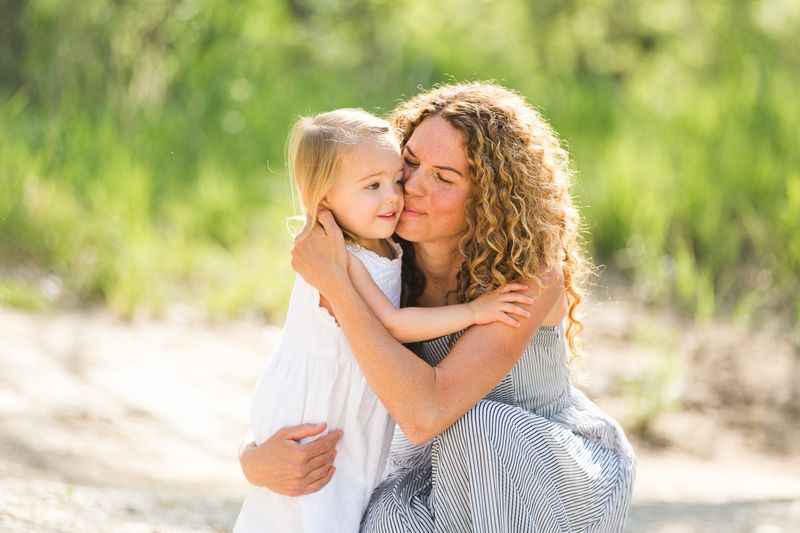
Your instincts are like an internal compass guiding you through life’s decisions. Trust them, even if others disagree. I remember a time when I ignored my gut feeling about a friend who turned out to be untrustworthy. It was a lesson in listening to myself.
Sometimes, your instincts might lead you in a different direction than others expect, and that’s okay. They’re usually based on your experiences and inner wisdom, making them a reliable guide. Pay attention to those small, intuitive nudges.
Whether it’s choosing friends, making decisions, or sensing when something’s wrong, your instincts often know what’s best for you. Trust them and have faith in your ability to navigate life’s challenges. Your instincts are a valuable tool, and learning to listen to them will serve you well throughout life.
12. Social media isn’t real life

Social media is a curated highlight reel, not a reflection of everyday life. It’s easy to forget this when scrolling through perfectly filtered photos and videos. I’ve fallen into the trap of comparing myself to others online, only to realize those moments are carefully chosen.
Remember, what you see isn’t the whole story. Influencers and friends might post the best parts of their day, but everyone faces challenges. It’s important not to measure your life against these edited snapshots. Focus on real connections and experiences.
Social media can be fun, but it shouldn’t dictate your self-worth or happiness. Enjoy it with a discerning eye, knowing that real life happens beyond the screen. Find joy the moments that aren’t captured and let them enrich your life. In the end, authenticity trumps any online persona.
13. You don’t need to be good at everything

Perfection isn’t the goal, and you don’t need to excel at everything. It’s okay to have areas where you struggle. I used to feel pressured to be good at every subject in school, but it’s unrealistic. Get to know your strengths and interests, and don’t stress over the rest.
It’s more important to enjoy what you do than to be the best at it. Trying new things can be rewarding, even if you’re not instantly good at them. Allow yourself the freedom to explore without the burden of perfection.
Your worth isn’t tied to your achievements, but to your growth and happiness. Celebrate what you’re passionate about and remember that learning is a journey, not a race. By letting go of the need to be good at everything, you open yourself up to more joy and discovery.
14. Your feelings are valid
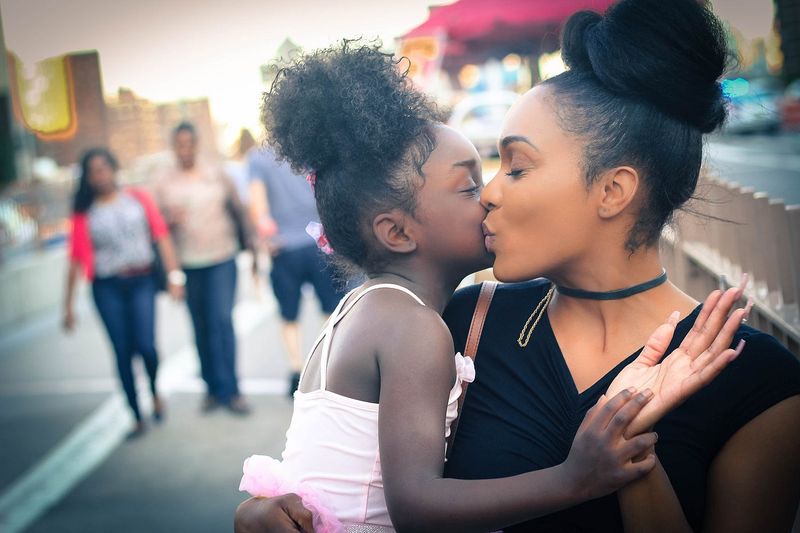
Your feelings are important and deserve to be acknowledged. Never let anyone tell you otherwise. I’ve been guilty of comparing my emotions to others, thinking they weren’t significant enough to matter. But every feeling you experience has a purpose, whether it’s joy, sadness, or frustration.
Talking about them can be incredibly liberating. Share what you’re feeling with someone you trust and see how it lightens your emotional load. Never minimize your emotions for fear of judgment. They’re a part of who you are and provide insight into your needs and desires.
Accept them and allow yourself to feel deeply. Your emotions are valid, and you don’t have to justify them to anyone. Be kind to yourself and give yourself permission to feel everything that comes your way. And mothers, remember that there are many things you can teach your daughters; it’s your responsibility.
15. Smart is beautiful

Intellect and curiosity are truly beautiful. Society often highlights physical beauty, but there’s so much more to admire. I’ve always admired those who love learning and asking questions. It’s a trait worth celebrating. Being smart is about thinking critically, exploring ideas, and embracing creativity.
Whether you’re solving math problems or losing yourself in a book, celebrate your love for learning. Don’t shy away from showing your smarts. They’re a part of what makes you unique and wonderful.
Pursue your passions with vigor and let your curiosity lead the way. Intelligence isn’t just about grades; it’s the way you perceive and engage with the world. Wear your smarts proudly, knowing they’re an integral part of your beauty.
16. You can always talk to me—about anything

No matter what’s on your mind, remember that you can always talk to me. As a parent, I’m here to listen without judgment. Whether it’s something small like a funny story from school, or a big concern weighing on you, I’m ready to listen.
Growing up comes with a lot of changes and questions. You might feel unsure about friendships, school, or even your own feelings. Know that you don’t have to navigate these alone. I’m here to offer support and guidance.
Our conversations are a safe space, free from criticism. I want you to feel comfortable sharing anything and everything. Your thoughts and experiences matter deeply to me, and I’m here to help you through life’s ups and downs. Never hesitate to reach out, because you’re never alone in this journey.
17. It’s okay to outgrow people

As you grow, so will your relationships. Sometimes, this means outgrowing friends or situations that no longer feel right. It’s a natural part of life. I’ve experienced drifting apart from people I once held dear, and it’s okay.
Change doesn’t erase the good memories you’ve shared. It simply means you’re evolving and your needs are changing. Make peace with this growth and allow yourself to move forward without guilt. Letting go opens the door to new opportunities and connections that align better with who you are becoming.
Remember, it’s okay to cherish the past while making room for the future. Outgrowing people doesn’t mean you’ve failed; it means you’re growing. Trust the journey and know that it’s leading you to where you need to be.
18. You’re allowed to change your mind

Life is full of choices, and you’re allowed to change your mind as you discover more about yourself. Interests and opinions evolve, and that’s perfectly normal. I’ve changed my mind about hobbies and future plans countless times.
Switching from one interest to another doesn’t mean you’re indecisive. It’s a sign of growth and exploration. Own the flexibility of your journey and allow yourself the freedom to adapt.
You’re not bound by past decisions. If something doesn’t feel right anymore, it’s okay to pivot. Life is about learning and adjusting as you go. Give yourself permission to change your mind without fear or apology. Each change is a step toward understanding yourself better and creating a life that truly fits you.
19. Crying doesn’t make you weak

Tears are a natural, healthy way to express emotions, not a sign of weakness. I’ve cried over things that seemed trivial later, but in the moment, they mattered. Crying is part of being human and it’s nothing to be ashamed of.
Sometimes, a good cry is exactly what you need to release emotions and find clarity. It’s an act of strength to allow yourself to feel and show vulnerability. Don’t hold back tears for fear of judgment.
They’re a testament to your depth and sensitivity. Understand your emotions, knowing that crying is just one way to process them. Be gentle with yourself and recognize that expressing feelings is a sign of courage, not frailty. Tears can be healing and transformative, guiding you to a place of peace.
20. You don’t have to fit in to belong

Belonging doesn’t require you to fit a mold. In fact, embracing your uniqueness often leads to the most meaningful connections. I’ve felt the pressure to conform, only to realize that being different is a strength.
Your quirks and individuality are what set you apart and attract genuine friendships. When you celebrate your true self, you invite others to do the same. This authenticity fosters deeper bonds.
Don’t compromise who you are to fit in. True belonging comes from being accepted as you are, not from changing yourself to be like others. Stand tall in your uniqueness, and you’ll find that you belong exactly where you’re meant to be. Your individuality is a gift, and it’s what makes you, you.
21. Respect is earned, not demanded
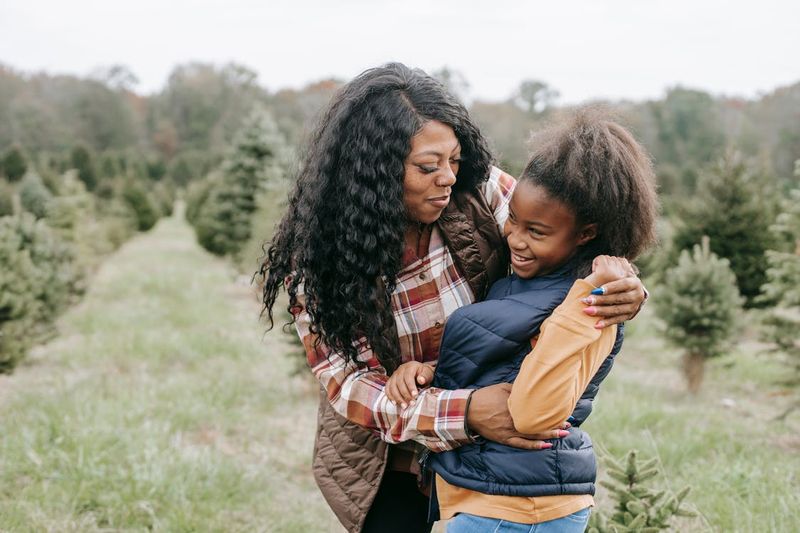
Respect is a mutual exchange, earned through actions and understanding, not demanded by age or status. It’s important to recognize who truly deserves your respect. I’ve learned that respect is built on kindness, empathy, and trust.
Just because someone is older or in a position of authority doesn’t automatically earn them your respect. Trust your judgment and give respect to those who show it in return. Expect the same in your interactions with others.
Stand firm in your values and express your thoughts respectfully. Remember, you deserve to be respected for who you are, and it’s okay to expect that from others. Mutual respect is the foundation of any strong relationship. And by teaching her this, you’ll avoid having to write a letter to a disrespectful daughter!
22. Know your worth, and don’t settle

Understanding your worth is crucial in all areas of life, especially in friendships and relationships. Never settle for less than you deserve. I’ve seen friends compromise their happiness for the sake of acceptance, and it never ends well.
You deserve to be treated with kindness and respect. Don’t accept anything less. Whether it’s a friend who doesn’t support you or a situation that feels wrong, trust your instincts and move on. Self-worth isn’t about arrogance; it’s about recognizing your value and expecting others to do the same.
Stay true to your beliefs and let go of anything that doesn’t align with them. Remember, settling is easy, but knowing your worth leads to a more fulfilling and authentic life. You are deserving of the best, and it’s okay to demand that.
23. Love yourself first
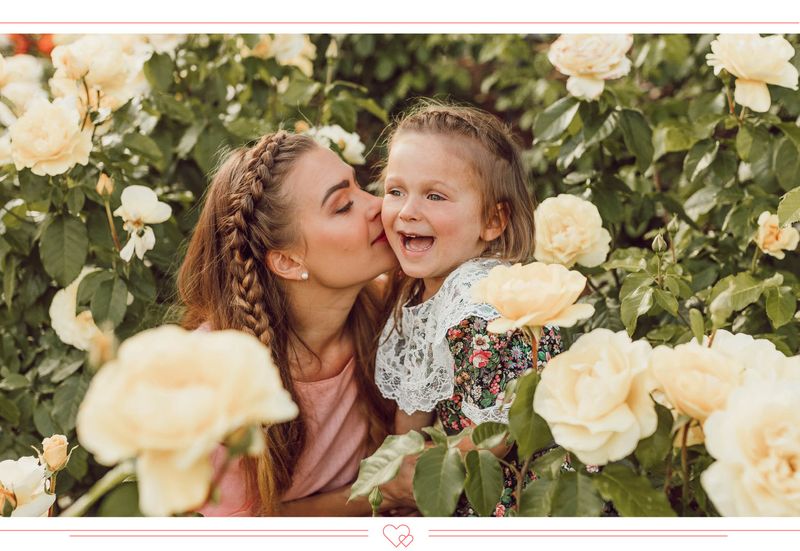
Many mothers have rules they want to teach their daughters to live by. Mine is: “Self-love is the foundation of all relationships.” Before you can truly love others, you must first love yourself. I’ve learned that self-care isn’t selfish; it’s necessary.
Start by accepting who you are, flaws and all. Practice self-affirmations and remind yourself of your strengths and accomplishments. This sets the tone for how others will treat you. Loving yourself means setting boundaries, taking care of your needs, and respecting your desires.
It’s about being your own biggest supporter. When you love yourself, you attract healthier relationships and experiences. Remember, you are worthy of love and happiness, and it starts with you. Nurture your relationship with yourself, and watch how it transforms every other relationship in your life.
24. Take breaks when you need to

Rest is not a luxury; it’s a necessity. Taking breaks is essential to maintaining balance and well-being. I once pushed myself too hard at school, thinking rest was laziness. It took a toll on my energy and happiness.
Listen to your body and mind. If you feel overwhelmed, take a step back. Whether it’s from schoolwork, social activities, or personal projects, breaks are a chance to recharge.
Rest allows you to return with a fresh perspective and renewed energy. It’s okay to pause and take care of yourself. Remember, you’re not a machine, and taking breaks doesn’t mean you’re not working hard. It means you value your well-being enough to give yourself the time you need to recover and thrive.
25. Ask questions, even if they feel uncomfortable

Curiosity is a powerful tool for learning and growth. Never hesitate to ask questions, even if they seem uncomfortable. I’ve been in situations where I held back, fearing judgment, and missed out on valuable insights.
Questions lead to understanding and clarity. They open doors to new perspectives and ideas. Whether it’s in class, with friends, or at home, asking questions shows your commitment to learning.
Don’t be afraid to seek answers. It’s okay to not know everything, and asking is a step toward knowledge. Embrace curiosity as a lifelong companion, and let it guide you through the unknown. Remember, every question you ask is an opportunity to learn and grow, so don’t hold back.
26. Not all adults are right

Being an adult doesn’t automatically make someone right. It’s important to recognize that adults can make mistakes too. I’ve learned that questioning respectfully is a skill worth having.
Don’t be afraid to trust your own judgment. Critical thinking is about weighing information and forming your own conclusions. If something doesn’t feel right, it’s okay to question it.
Respectfully challenging ideas can lead to meaningful discussions and growth. It’s not about being disrespectful, but about engaging in thoughtful dialogue. Trust your instincts and know that your perspective is valid, regardless of age. You have a voice, and it deserves to be heard.
27. Never apologize for being yourself

You are unique, and that’s something to celebrate, not apologize for. I’ve felt the pressure to conform, but I’ve learned that authenticity is far more rewarding.
Live your truth and individuality and let them shine. Whether it’s your interests, style, or personality traits, these are what make you, you. Stand tall and be proud of who you are.
Don’t let others dictate how you should be. Your uniqueness is your strength. By being yourself, you inspire others to do the same. Remember, you don’t need anyone’s permission to be yourself. Live unapologetically and let your true colors shine. You are perfect as you are.
28. You’re allowed to have boundaries

Boundaries are essential to healthy relationships and self-respect. They define what you’re comfortable with and help protect your well-being. I’ve learned the importance of boundaries in maintaining balance.
It’s okay to say no when something doesn’t feel right. Whether it’s a friendship, family, or school situation, your boundaries matter. Respect them and expect others to do the same.
Setting boundaries isn’t about being harsh; it’s about honoring yourself. Practice using phrases like “I’m not comfortable with that” or “I need some space.” Remember, you have the right to protect your peace and happiness. Boundaries are a form of self-love and should be respected by those around you.
29. Being brave doesn’t mean not being scared

Bravery isn’t the absence of fear; it’s taking action despite it. I’ve faced situations where nerves tried to hold me back, like speaking in public or standing up for a friend.
Courage comes from acknowledging your fear and choosing to move forward anyway. It’s about pushing past the discomfort and doing what’s right for you.
Every act of bravery, big or small, builds resilience and confidence. Don’t be afraid to take that first step, even if your voice shakes. Remember, being brave doesn’t mean you’re never scared; it means you find the strength to face your fears.
30. You are so deeply loved, exactly as you are

Um dos things daughters learn from their mothers is that they are loved more than words can express. Never doubt the depth of love that surrounds you, just as you are. I’ve felt the power of unconditional love, and it’s a comfort like no other.
You don’t need to change or prove yourself to be worthy of love. It’s given freely by those who truly care for you. Take this love and let it strengthen you.
Remember, you are cherished for your unique qualities and the beauty of your spirit. Let this love be a guiding light in your life, providing reassurance and warmth. You are so deeply loved, and nothing will ever change that. Hold this truth close to your heart and let it remind you of your infinite worth.







